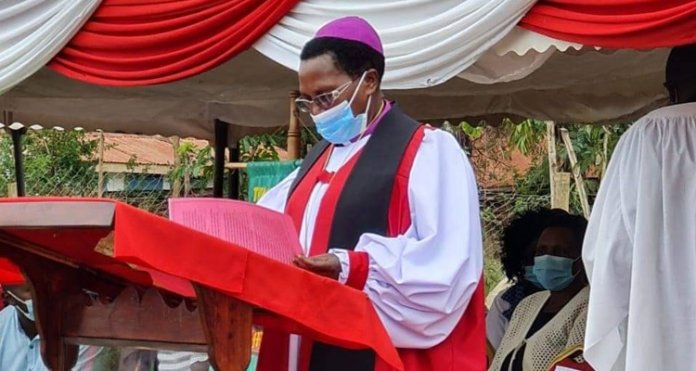On 24 April, the Kenya meteorological department warned of more rains, as the number of people affected by the floods continued to rise. At least 38 people have died in the flooding and more than 11,000 households are displaced so far, according to the Kenya Red Cross. Over 27,000 acres of farmland are also submerged in the floods that have killed an estimated 4,800 livestock.
“I think this is most unfortunate. The situation is dire. People have lost everything, including their homes,” said Rev. Dr Emily Awino Onyango, assistant bishop of the Bondo Anglican Diocese in western Kenya. “The people who do not have anything are most affected. Even if you give them food and blankets, that cannot replace homes.”
The floods have affected 23 out of Kenya’s 47 counties. They are as a result of heavy rains that started mid-March.
The raging waters are tearing apart roads, breaking bridges, and uprooting sewer lines. Farmlands and homes have been submerged, with food crops being swept away.
In mid-April, floods in Tanzania killed at least 58 people, and displaced 126,000 others, mainly in the coastal regions. Floods also destroyed more than 75,000 farms, according to news reports.
The disaster comes on the heels of the United Nations Environment Assembly which passed 15 resolutions to tackle the three planetary challenges of climate change, biodiversity loss, and pollution.
“The world needs action. The world needs speed. The world needs real lasting change,” Inger Andersen, UN Environmental Programme director said at the end of the 26 February-1 March gathering in Nairobi.
At the same time, Bishop Onyango said the weather disaster underlined humanity’s failure to care for creation and the environment. She urged an immediate refocusing on the care to slow down such occurrences.
“We have not cared for creation and these are the effects. One of the biggest problems…is cutting down trees and the people settling on the banks of lakes and rivers. We all know that should not be allowed,” the bishop said. “As Christians, I think we need to come back urgently to the care of the creation.”
Rev. Dr Ezekiel Lesmore, director of Programmes at the All Africa Conference of Churches, said nature was angry at humanity for brutalizing it in the quest for wealth and technological advancement.
“Humanity has acted without due consideration of the ecosystem and the roles that each component plays in our collective wellbeing. We have failed in our stewardship roles,” said Lesmore, a Nigerian Lutheran priest.
“Of course, the communities that are affected in Africa [have] committed the least crime against nature.”
“The industrial nations must be held responsible and made to compensate [less developed nations] through the established Loss and Damage Fund,” he added.
Both local and international church relief and development agencies are responding to the emergencies.
The Anglican Development Services of Kenya is delivering some basic needs, such as food and blankets, in some of the affected areas.
“I think the government is not doing enough. You know, we always wait until floods occur. The government must do its work…and ensure the people do not construct homes on the lakes and river banks,” said the bishop.
The bishop stressed prioritization of water harvesting for when there will be no water during the next phase of drought, which may come as soon as the next few months.










